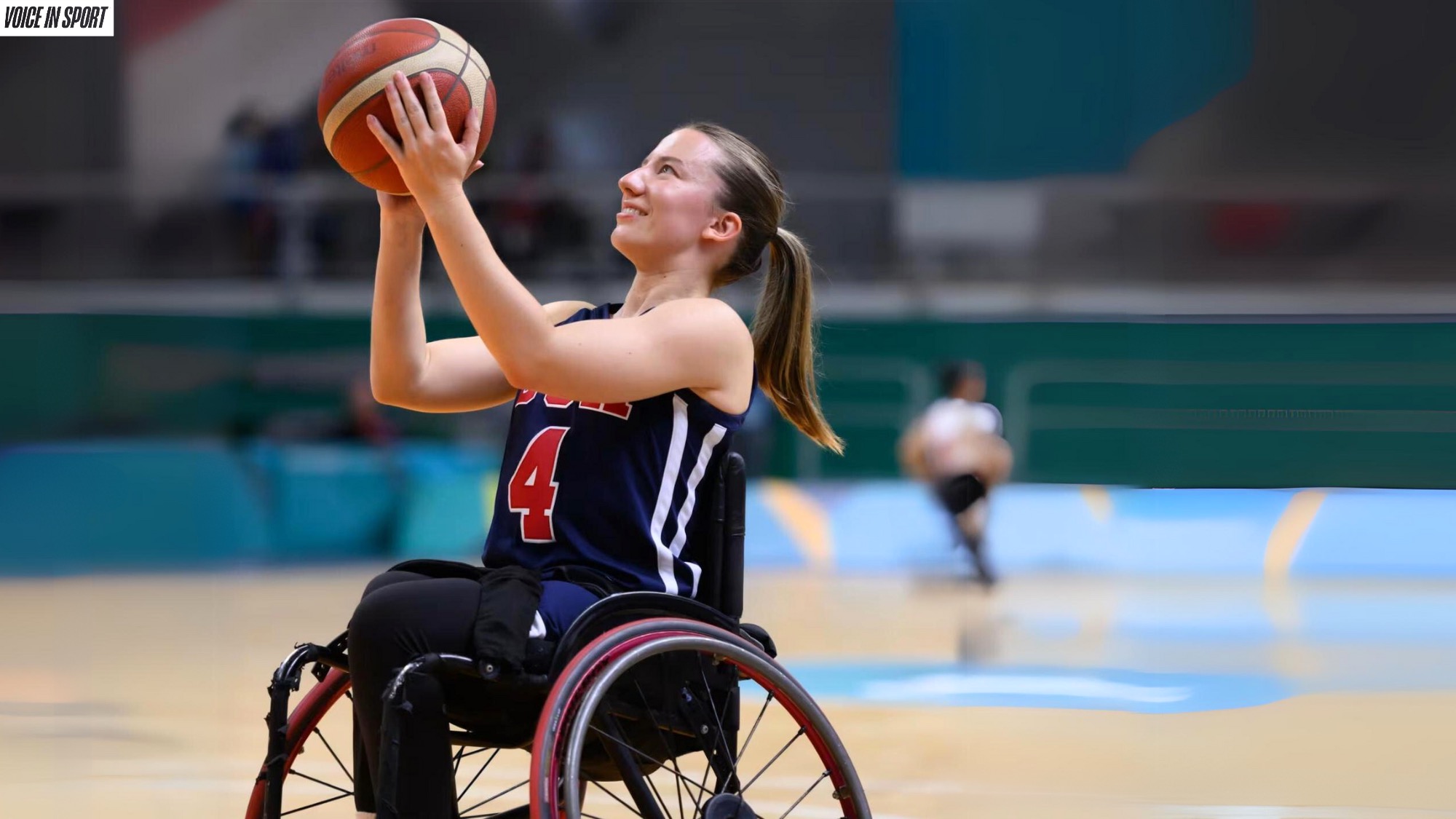Abby Bauleke was diagnosed with Leukemia at four years old, and she was paralyzed from the waist down at five. Today, Bauleke is a collegiate and national team wheelchair basketball player, two-time Paralympic medalist, and World Championship medalist. We had the opportunity to sit down with Bauleke to ask her about how adaptive sports have had a positive impact on her life, and how her health history gives her perspective and resilience in her sport.
The Growing World of Adaptive Athletics
For Bauleke, life changed very quickly after she was diagnosed. Bauleke highly praises adaptive sports for creating the opportunity to continue her life as an athlete. “The Paralympic world is growing,” Bauleke says. “I did not know a lot about adaptive athletics until I was 12 because it wasn’t talked about as it is now. When I was paralyzed, I thought I couldn’t play sports. People do not have those thoughts anymore. It is a whole new world.”
She credits the assimilation of adaptive sports into society, the popularity of the Paralympics, and the media coverage and broadcasting now given to these sports. The more VISibility that adaptive sports have, the more we can help athletes who are recovering from diagnoses like Leukemia know that their love for and life in sports does not have to be taken from them.
The Power of a Support System
Being a player on a team sport with girls who grew up using wheelchairs creates a healthy support system where disabled people get to set and chase goals, together. Teammates become family, and having a group to relate to not only in sport, but in life, is something that Bauleke highly values. “Being surrounded by other people who grew up with a disability was very helpful. It normalized it,” she says. Even when speaking about non-adaptive sports, Bauleke emphasizes what her teams mean to her. “I appreciate being able to win and lose with a group of people. Everyone is putting in the work, riding all of the highs and lows,” she adds.
Bauleke also puts her experience with Leukemia in perspective because if she can handle that, she can handle anything. This mental toughness is a core principle that unites her team, since they can relate to each other, excel, and push themselves together. Learning from, leaning on, and trusting each other is the name of the game in sports, and Bauleke expresses how much this adds to her athletic experience.
“When I was paralyzed, I thought I couldn’t play sports. People do not have those thoughts anymore. It is a whole new world.”
Finding Balance with Academics and Athletics
As a Paralympic athlete who is now back in school, Bauleke has a very busy schedule. At the Paralympics, the Games take place over a few weeks, so it can be difficult to maintain focus and control the nerves that come with competing. By focusing on “one practice a day, and one game at a time,” Bauleke’s team maintained a balance while competing. Keeping it fun, not thinking too much about future games, and supporting each other is crucial. This helped Team USA find success, bringing home a silver medal from Paris.
When it comes to academic advice, Bauleke missed some weeks of classes at the University of Alabama because of her time abroad for the Games. Most of us have faced the issue of playing catch up with school because of a busy schedule or traveling due to sport, and Bauleke emphasizes that communication with professors is highly important. They will help you navigate this balance if you keep them up to date, explain your schedule, and do your best to work with them to maintain good performance in the classroom.
Also, be sure to take time for yourself. Embrace the worlds of both academics and athletics, but don’t feel like you can’t take a break to reset. Doing so will help clear your brain and will, in return, help you in school and sports.
Bauleke gives great insight into how she used adversity in her health as redirection for something bigger than a diagnosis. Her experience in wheelchair basketball represents the power of a strong support system and the benefit of athletics in her life. She shows us how to capitalize on opportunity and face adversity with courage and confidence to excel and shine on the court and in the classroom!


